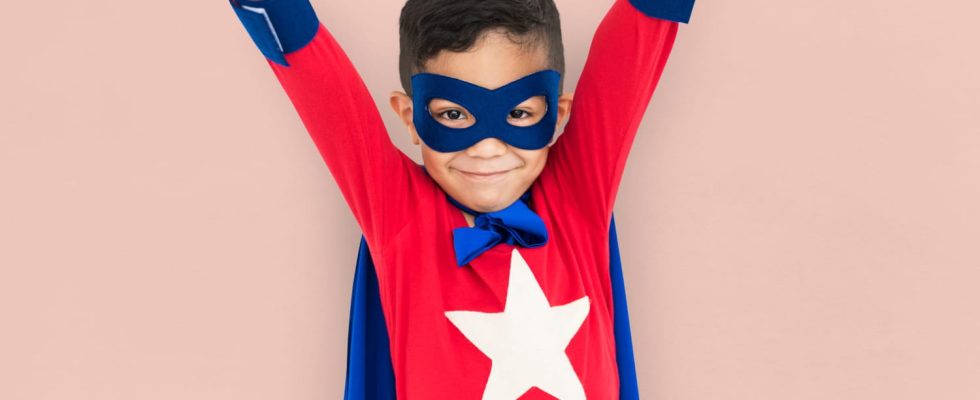Dragon Ball, Miraculous, Paw Patrol…What is your child’s favorite cartoon and what does it reveal about them? We take stock with our psychologist.
According to a study carried out by IDM Families and published in 2021, 86% of fathers and 69% of mothers think that fictional characters inspire their children who tend to identify with their favorite heroes and want to imitate them. And for good reason, like an adult with a novel, children project themselves into a story through cartoons, which contributes to the development of their personality. For example, a child who has lost one of his parents will easily identify with The Lion King or Nemo, while another who has an “evil” stepmother will recognize himself in Cinderella or Snow White. In other words, Your child’s favorite cartoon hero says a lot about their personality.
What personality do Disney princesses reveal?
Susan Storm, founder of the Psychology Junkie site, associated certain Disney princesses with personalities from the MBTI (Myers Briggs Type Indicator) test which allows you to define, using a questionnaire, your personality type among 16 profiles.
- Ariel the Little Mermaid : “She craves freedom, exploration, and discovery. And like most ENFPs, she follows her heart, even when others try to discourage her.” On the other hand, she is little aware of her responsibilities.
- Belle from Beauty and the Beast : Belle is perceptive, curious and open-minded. She is very intuitive.
- Alice in Wonderland : according to the expert, Alice has a great capacity for analysis and an ultra-developed sense of intuition. She is very curious and open-minded.
- Elsa from Frozen : Elsa is a rather solitary personality, who needs time to accept herself. She doesn’t like conflict.
- Mulan : Often misunderstood, Mulan makes decisions impulsively, but always lets herself be guided by her intuition. She is very resourceful.
- Snow White : loving, warm, pragmatic, Snow White is naturally optimistic.
Son Goku from Dragon Ball
Main character of Dragon Ball, Son Goku is a child who likes to exceed his limits and who loves to fight. The only downside is that this sometimes leads him to take excessive risks.
Paw Patrol Ryder
Ryder is an energetic little boy, always full of good ideas. With a leadership spirit, he saved the puppies to form the Paw Patrol!
Naruto Uzumaki from Naruto
An exuberant and enthusiastic character, Naruto as a child mocks social conventions. He develops mental strategies very quickly and always has an idea to catch his opponents off guard. And like many children, he is difficult to eat!
Captain America from the Avengers
Captain America is one of the pillars of the Avengers superhero team. Very courageous, he fights for justice and strives to do good around him.
Marinette Dupain-Cheng – Ladybug from Miraculous
Sweet, cheerful and intelligent, Marinette is also very clumsy. When she transforms into Ladybug thanks to the Ladybug Miraculous, she gains much more self-confidence.
The opinion of Johanna Rozenblum, clinical psychologist
To develop psychologically, the child needs referents. The first contacts are often the parents. Then, very quickly, teachers and other adults close to the child who are responsible for educating them, supporting them and helping them grow, in turn become referents. The good thing about cartoon heroes is that the child doesn’t have to adapt as he would with an adult around him. He is the one who will choose his own reference hero.
Certain characters will allow him to identify because they represent a photograph of him at a given moment. He will recognize in this character a hypersensitivity, an emotionality or on the contrary an optimism and a desire to surpass himself. In other words, by projecting themselves into this character through which they recognize themselves, the child will be able to see how the character manages their emotions and approaches certain things in life. He will become his alter ego, his model.
Other characters allow the child to project themselves into the future : he will recognize himself through a character who embodies the version of himself that he would like to become when he is older.
